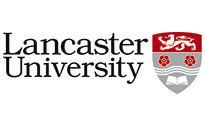
Megatrends and Their Impact on Society
Course ID: 2506160101291ESH
Course Dates : 16/06/25 Course Duration : 5 Studying Day/s Course Location: London, UK
Language: Bilingual
Course Category: Professional and CPD Training Programs
Course Subcategories: Operations and Process Excellence
Course Certified By: ESHub CPD & LondonUni - Executive Management Training
* Professional Training and CPD Programs
Leading to:
Executive Diploma Certificate
Leading to:
Executive Mini Masters Certificate
Leading to
Executive Masters Certificate
Certification Will Be Issued From :
From London, United Kingdom
Course Fees: £5,120.30
Vat Not Included in the price. VAT may vary depending on the country where the course or workshop is held.
Click to Pay
Date has passed please contact us Sales@e-s-hub.com
Course Information
Introduction
The study of megatrends offers invaluable insights into the long-term shifts that shape societies, economies, and environments. These overarching global phenomena—spanning demographics, technology, the environment, geopolitics, and social dynamics—hold significant implications for both individuals and organizations. Understanding how these trends emerge and evolve is essential for professionals seeking to make informed decisions that anticipate and align with future developments. As the world becomes increasingly interconnected, the consequences of these megatrends are felt in diverse sectors, from policy-making and urban planning to corporate strategy and personal development. The ability to identify, analyze, and respond to megatrends provides a competitive edge in navigating a rapidly changing world.
Megatrends influence nearly every aspect of human activity, whether it be the transformation of industries through automation, the reshaping of labor markets by globalization, or the profound impact of climate change. For instance, the rise of artificial intelligence and big data is revolutionizing business operations, leading to a redefinition of roles and competencies required in the workforce. Similarly, demographic shifts, such as aging populations in developed countries, present challenges and opportunities for policymakers and businesses alike. Understanding these broad forces can empower organizations to adapt, innovate, and thrive in uncertain times.
Moreover, megatrends are not static but evolve over time, with one trend often influencing or accelerating others. For example, the convergence of advancements in digital technology, biotechnology, and environmental science is paving the way for radical shifts in healthcare, agriculture, and environmental sustainability. By recognizing how these interconnections unfold, professionals can craft strategies that anticipate change rather than simply react to it. This course aims to equip participants with the knowledge and skills to understand and leverage these global shifts for long-term success.
However, while the potential benefits of understanding megatrends are vast, they are not without challenges. One key issue lies in the unpredictability of how these trends will unfold. A thorough comprehension of megatrends requires professionals to not only understand the trends themselves but also the drivers behind them and the uncertainty involved in predicting their exact course. This requires a combination of analytical skills, foresight techniques, and a willingness to engage with uncertainty in a structured manner.
Additionally, many megatrends introduce complex societal and ethical questions that need careful consideration. For example, the rise of AI raises concerns about privacy, bias, and job displacement, while demographic changes may force a rethinking of intergenerational equity. As such, professionals must not only understand the economic implications of these trends but also the societal and ethical dimensions that accompany them.
This course will guide participants through a structured exploration of the most prominent megatrends, equipping them with the tools to analyze their potential impacts and to develop forward-looking strategies. By the end of the program, participants will possess a comprehensive understanding of the megatrends shaping the future and how to incorporate these insights into their personal and professional decision-making processes.
Objectives
By attending this course, participants will be able to:
Identify and describe the key megatrends shaping the global landscape.
Analyze the interconnections between various megatrends and their potential implications for society.
Evaluate the societal, economic, and environmental impacts of emerging megatrends.
Apply foresight techniques to anticipate future trends and prepare for their impact on different industries.
Integrate an understanding of megatrends into strategic decision-making processes.
Critically assess the ethical, social, and political implications of megatrends on different sectors.
Who Should Attend?
This course is ideal for:
Senior executives, business leaders, and decision-makers seeking to gain insights into long-term trends that could impact their industries.
Policymakers and government officials who are tasked with shaping future policies and preparing for global shifts.
Strategic planners and consultants in sectors such as technology, healthcare, finance, and urban development.
Professionals working in industries such as manufacturing, logistics, and energy who need to adapt to the challenges posed by megatrends.
Researchers, futurists, and academics interested in the study of global trends and their societal effects.
Entrepreneurs looking for new opportunities and innovative approaches in a changing global environment.
Training Method
• Pre-assessment
• Live group instruction
• Use of real-world examples, case studies and exercises
• Interactive participation and discussion
• Power point presentation, LCD and flip chart
• Group activities and tests
• Each participant receives a 7” Tablet containing a copy of the presentation, slides and handouts
• Post-assessment
Program Support
This program is supported by:
* Interactive discussions
* Role-play
* Case studies and highlight the techniques available to the participants.
Daily Agenda
Daily Schedule (Monday to Friday)
- 09:00 AM – 10:30 AM Technical Session 1
- 10:30 AM – 12:00 PM Technical Session 2
- 12:00 PM – 01:00 PM Technical Session 3
- 01:00 PM – 02:00 PM Lunch Break (If Applicable)
- Participants are expected to engage in guided self-study, reading, or personal reflection on the day’s content. This contributes toward the CPD accreditation and deepens conceptual understanding.
- 02:00 PM – 04:00 PM Self-Study & Reflection
Please Note:
- All training sessions are conducted from Monday to Friday, following the standard working week observed in the United Kingdom and European Union. Saturday and Sunday are official weekends and are not counted as part of the course duration.
- Coffee and refreshments are available on a floating basis throughout the morning. Participants may help themselves at their convenience to ensure an uninterrupted learning experience Provided if applicable and subject to course delivery arrangements.
- Lunch Provided if applicable and subject to course delivery arrangements.
Course Outlines
Introduction to Megatrends and Their Global Impact
Overview of Megatrends: Definition, Characteristics, and Scope
The Role of Technology in Shaping Megatrends
Understanding the Drivers of Change: Demographics, Technology, and the Environment
Frameworks for Analyzing and Predicting Megatrends
Day 2:
Technological Megatrends and Their Impact on Society
The Rise of Artificial Intelligence and Automation: Opportunities and Challenges
The Digital Revolution: Big Data, the Internet of Things, and Cybersecurity
Technological Disruption in Key Industries: Healthcare, Manufacturing, and Finance
Ethical Considerations in the Age of Technology: Privacy, Bias, and Social Justice
Day 3:
Demographic and Social Megatrends
Aging Populations: Implications for Healthcare, Employment, and Social Systems
Urbanization and the Growth of Smart Cities
Global Migration Patterns and Their Social and Economic Impact
The Rise of New Consumer Demographics and Changing Lifestyles
Day 4:
Environmental and Sustainability Megatrends
Climate Change and Its Far-reaching Impacts on Society
The Shift Toward Renewable Energy and Sustainable Practices
Resource Scarcity and Its Implications for Future Generations
Policy Responses to Environmental Megatrends: International Cooperation and Local Actions
Day 5:
Navigating the Future: Strategic Responses to Megatrends
Developing Foresight Strategies for Identifying Future Trends
Aligning Organizational Strategy with Emerging Megatrends
Case Studies of Successful Adaptation to Megatrends
Practical Tools and Techniques for Long-Term Planning and Risk Management


















































